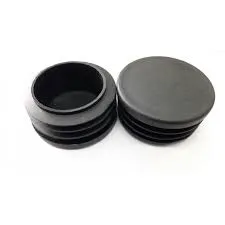Mobile:+86-311-808-126-83
Email:info@ydcastings.com
High-Performance Titanium Turbo Housing for Enhanced Engine Efficiency and Durability
Exploring Titanium Turbo Housing A Revolution in Performance Engineering
In the world of automotive performance, the quest for power and efficiency is paramount. Turbocharging has become a standard practice in enhancing engine outputs, but the materials used in their construction can significantly impact performance. One such material that is garnering attention is titanium, particularly in the context of turbo housing. This article delves into the advantages and implications of using titanium for turbo housings, making it clear why this revolutionary material is making waves in the industry.
Understanding Turbo Housing
Turbo housings are crucial components in turbocharged engines, housing the turbocharger and directing the airflow. The housing operates under extreme conditions, with high temperatures and pressures during engine operation. Traditionally, aluminum and cast iron have been used in turbo housing construction due to their affordability and workability. However, as the demand for higher performance and efficiency increases, engineers are exploring alternative materials that can better withstand these challenging conditions while also being lightweight.
Why Titanium?
Titanium stands out as a superior alternative due to its exceptional properties. Known for its high strength-to-weight ratio, titanium provides a lightweight solution without compromising durability. In high-performance applications like turbocharging, every ounce counts. The lightweight nature of titanium allows for quicker spool-up times, leading to a more responsive engine. This is particularly advantageous in motorsport where fractions of a second can determine victory.
Moreover, titanium has excellent heat resistance. It can withstand elevated temperatures—up to 1,600 degrees Celsius—making it suitable for handling the intense heat generated within turbo systems. Unlike conventional materials that can warp or degrade under high temperatures over time, titanium maintains its integrity much longer, leading to improved reliability and longevity of the turbocharger.
Thermal Management and Efficiency
titanium turbo housing

Another significant advantage of titanium is its thermal conductivity. Unlike cast iron, which retains heat, titanium allows for better heat dissipation. Efficient thermal management is crucial in turbocharged engines as it minimizes the chances of overheating, which can lead to catastrophic failures. With titanium turbo housing, engines can operate at optimized temperatures, increasing overall efficiency and performance.
Furthermore, titanium's resistance to corrosion enhances the lifespan of turbo housings. Turbocharged engines often operate in harsh environments where exposure to substances like oil and exhaust can lead to deterioration over time. Titanium’s inherent resistance to corrosion means that turbo housings can withstand these conditions and perform consistently over extended periods.
Challenges and Considerations
Despite its advantages, the adoption of titanium for turbo housing is not without challenges. The primary hurdle is the cost. Titanium is significantly more expensive than traditional materials, which can lead to higher prices for consumers. Additionally, titanium's workability can complicate manufacturing processes. Engineers require specialized techniques and equipment to mold and fabricate titanium parts, which can complicate production.
Moreover, some concerns regarding the bonding of titanium with other automotive materials must be addressed. Engineers must ensure that dissimilar materials do not negatively interact, particularly in high-stress environments.
The Future of Titanium Turbo Housing
As technology progresses and the automotive industry continues to push for enhanced performance and sustainability, titanium turbo housings represent a promising frontier. With research focusing on more cost-effective manufacturing techniques and better understanding of titanium's properties in real-world applications, it’s likely we will see broader adoption in the near future.
In summary, titanium turbo housing presents an innovative solution for high-performance engines, offering benefits such as reduced weight, increased heat resistance, and improved efficiency. As the industry evolves, embracing materials like titanium could pave the way for the next generation of turbochargers, transforming the landscape of automotive engineering and performance.
-
Valve Body Acts as the “Heart” of Flow ControlNewsMay.19,2025
-
Understanding the Importance of ImpellersNewsMay.19,2025
-
Importance of Automobile Water PumpsNewsMay.19,2025
-
How an Engine Oil Pan Works to Keep Your Car LubricatedNewsMay.19,2025
-
Common Materials Used in Pump Impeller ManufacturingNewsMay.19,2025
-
Ball Valve Casting in Modern Pipeline SystemsNewsMay.19,2025











